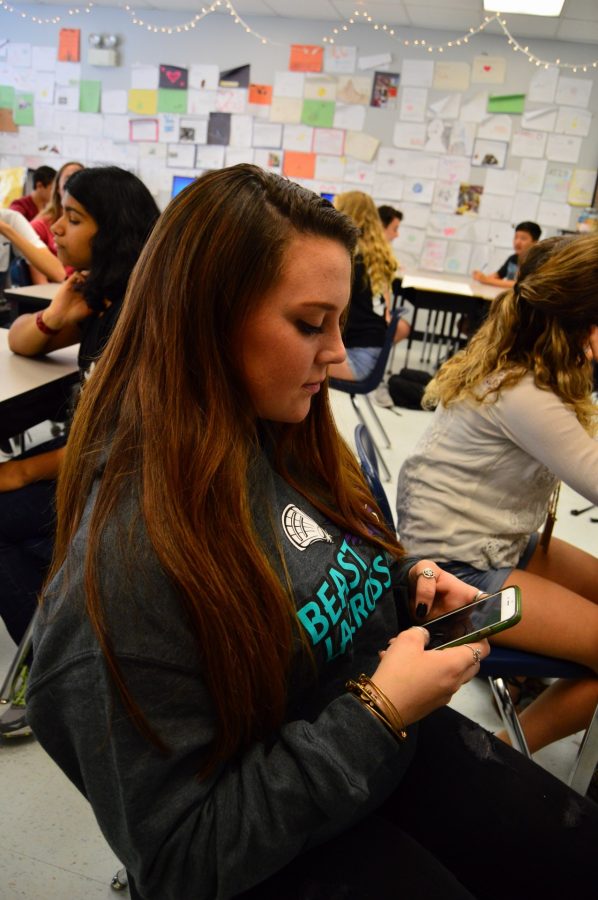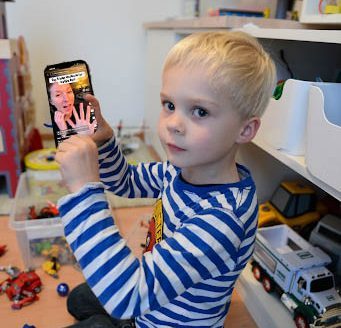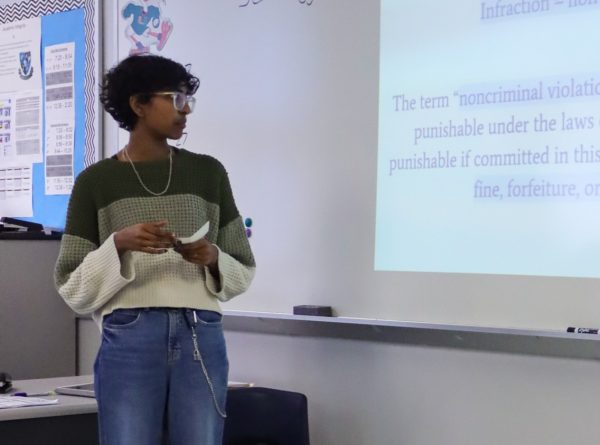I’ll think of the title of this story later
Procrastination plays large role in average students’ lives.
In the words of Rita Mae Brown, “If it weren’t for the last minute, nothing would get done.”
Brown is clearly not alone in this belief. Sophomore Roberto Vasquez set the goal of reading five pages of his English summer assignment book every day over the break, then ended up not reading the book at all.
Procrastination affects everyone, and it takes a heavy toll on high school students. Putting things off tends to build up on students, leading to a later bed time or lower quality work.
StudyMode, an education-technology company dedicated to helping students succeed in school, ran a “Student Psyche Report” in which they asked approximately 13,00 high school and college students about their study habits.
The findings show that procrastination is widespread, with 87 percent saying they procrastinate, and that it’s affecting their performance. 45 percent report procrastination negatively impacts their grades on a regular basis.
“Usually I’ll come home from school and have a list of everything I want to finish, but then I end up doing a fourth of it and then go sit around on my phone or Netflix,” senior Caitlyn Patel said. “So, I’ll still be staying up until around two in the morning, but it’ll be for stupid reasons instead of my schoolwork.”
Junior Jordan Snoap can relate.
“Procrastination slightly decreases the quality of the schoolwork, as I’m in more of a rush when doing it last minute than I’d be if I spread out the work,” Snoap said.
Put extra-curriculars into play, and students end up being stressed, putting all their work off until the last minute to make time for their activities.
Junior Courtney O’Dea takes six AP classes: English Language, U.S. History, Calculus AB, Psychology, Physics I and Computer Science. She also is a cheerleader for the school, and for a competitive gym, the historian for Beta Club, in Science National Honor Society, National Honor Society, and Key Club.
“I have a lot of cheer during the week, so I try to get things done during the weekends, but then I end up procrastinating until the end and I won’t start my homework until 10 at night,” O’Dea said.
For O’Dea, being involved in extra activities takes her mind off her many hours of homework and other school-related tasks. They also contribute to her college applications. However, this isn’t the case for everyone.
Sophomore Jacob Faulk plays basketball and volleyball and he agrees with Snoap.
“Participating in extra-curriculars and trying to balance that with my school work is hard but it’s a challenge that you take on when you do sports, so you just have to deal with it,” Faulk said.
Patel is the Editor-in-Chief of yearbook, president of Beta Club, treasurer of Science National Honor Society, a member of Key Club, Rho Kappa and National English Honor Society, and, for her, extra-curriculars have an opposite effect.
“Procrastinating makes me a lot more stressed, but instead of being moderately stressed all the time I’m overwhelmingly stressed the night before an assignment is due,” Patel said. “But even then, I’m still at least a little stressed every night when I look at my planner and see everything I haven’t done yet.”
Procrastination can have positive outcomes, as well. O’Dea believes that procrastination, many times, helps her get through work faster because she is more focused due to the limited time left to finish. For Vasquez, procrastination led him to place in his school’s science fair when he was in eighth grade.
Vasquez waited until the last day of Thanksgiving break to do his project, and it was due the next day.
“I did the easiest project, a potato battery, and thought it was the sloppiest thing I had ever done. I already prepared myself to take a bad grade,” Vasquez said. “It turned out my teacher thought it was absolutely amazing and sent me to the school science fair and I got second place. After, I ended up going to the county science fair and I got an award there.”
It is common for students to set goals that don’t get achieved relating to their school work. This is true for many, including Faulk.
“I set my goals high [for my schoolwork],” Faulk said. “I procrastinate a lot between when I set the goals and when my assignments get accomplished.”
Some may wonder why others put themselves through all the hard work and time that is consumed when taking an AP class. Usually, it is because they want to challenge themselves and boost their grade point averages. But, some students take multiple AP classes, striving to be in the top ten of their class.
“I took seven AP classes my junior year and this year I’m only taking five. I took so many both years because of my GPA and class rank, but also because I feel like you learn a lot more in AP classes than you do in honors and standard classes,” Patel said.
Procrastination plays a large role when dealing with such high level classes, and Patel gives a piece of advice on it.
“Even though it’s hypocritical of me to say, don’t sacrifice your mental sanity for your GPA, as much as you may want to.”
Your donation will support the student journalists of Hagerty High School. We are an ad-free publication, and your contribution helps us publish six issues of the BluePrint and cover our annual website hosting costs. Thank you so much!







